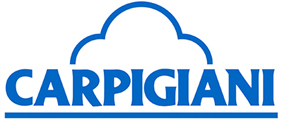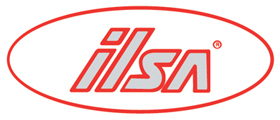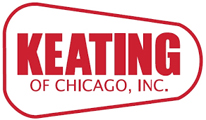Manufacturing at the Business of the Year
Countryside Deli Case Study
March 16, 2022How to Attract and Retain Kitchen Staff During The Great Resignation
April 7, 2022
Henny Penny Corporation, Eaton, Ohio, was recently named Dayton business Journal’s 2021 Business of the Year. It’s a terrific honor and we take a certain amount of pride in being recognized for the effort our employee-owners put in every day and the accomplishments that result. But it goes deeper than that. We see this as a validation of what we have, for decades, simply called the Henny Penny Culture.
What is that difference? Is there something unique about this 900+ employee-owned manufacturing company that was founded in small-town Ohio and never budged? In this 5-part blog series, we’ll hear from some of the individuals who understand best the hows and the whys behind the things Henny Penny does and believes in that have made our company not only a Midwestern success story, but a highly regarded global brand in the commercial foodservice equipment industry.
Growth is associated with success. But how do you continue to grow in a mature industry and maintain focus on employee well-being, customer relationships and product reliability? For the Dayton Business Journal’s 2021 Business of the Year—a sixty-five-year-old equipment manufacturing company that’s never had a union, or a plant lay-off for that matter, and is now owned by its employees—the answer is deceptively simple:
Evolve your processes, leverage your capacity, and scale your systems.
Boyd Davis started as an assembly line worker at Henny Penny 42 years ago. Today he is Director of Manufacturing. “Back then to make a fry pot for a pressure fryer, you formed it, you welded it… that was one. Then you did it again. If you ran out of parts you had to wait until somebody made more.”
Manufacturing is completely different now. Davis described a 2-card Kanban system with roots in Just In Time manufacturing, where raw material, parts and components basically show up right as they are needed for assembly and are in turn replenished by the act of using them. “Factory automation gets a lot of press, but it’s really about how things flow through the plant. Flow is what keeps everything on track. When you lose that flow, it can take days to get it back.”
That’s one reason Henny Penny decided decades ago to bring the design and manufacture of electronic control boards and wiring in-house. It was an unusual move in the industry, and still is.
“When everything went digital, most of our competitors sent out for their boards,” said Amanda Creager, Production Manager in electronic assembly. “But control is such a core function in cooking and holding, and we didn’t want to have to depend on some other company’s design and delivery schedule.” Lately, Henny Penny has been producing 125,000 control boards and more than a million wire harnesses a year. And it’s all part of the flow.
Not that automation isn’t important. It’s actually vital, especially now, when manufacturers like Henny Penny are struggling to hire enough workers. “By automating systems and processes, we gain the ability to increase production capacity with our current workforce,” says Davis.
In the past five years, Henny Penny has beefed up its fabrication process with two digitally controlled fiber optic lasers and a brand-new panel bender that turns steel “flats” (cut by those lasers) into the proper three-dimensional shapes needed for a wide variety of parts.
“The newer machines are simply faster, better and more accurate,” said Davis. “And the beauty of it is that an automated process can run at night when no one is here. We have always promised careers with a good work-life balance. Automation helps us deliver on that.”
In fact, Davis believes the biggest innovation in manufacturing to date for Henny Penny goes beyond technology and automation. When ownership was transferred to employees through the 2015 ESOP, the company changed the way it defines roles and pays for skills to something called Empowered Ownership.
“The concept can be explained in three steps: Select a job that aligns with your skill, work towards mastering that skill, then share your knowledge to help others become better. When everyone takes ownership in what they do, everybody wins! Empowered Ownership gives individuals in the manufacturing workforce a very clear path for learning and advancement. We’re improving people as well as processes. And that has changed the company.”
The ownership layer fits snugly over mindset of continuous improvement that has always been part of Henny Penny culture. As the company outgrows its entrenched processes, the challenge becomes achieving consistency across all departments.
“We’re trying to institutionalize tribal knowledge,” said Joe Meadows, Manager of Quality Assurance and Engineering Services. “Someone has been welding fry pots for twenty years. How do we capture and communicate that experience? There are people here who can look at the lid to a pressure fryer and say that it just doesn’t look right. It can meet all the specs, but just not look like part of a Henny Penny product. And they’re right. How do we capture and propagate that knowledge and understanding?”
That’s where Quality Assurance (QA) comes in. The purpose of QA is to make sure every process is creating quality all the time. It does this, Meadows says, by seeking out and eliminating the opportunities for bad products to be made. As manufacturing becomes more specialized, so does the need for QA specialists in measurement, metallurgy, and instrumentation to continually examine processes, evaluate risk and qualify suppliers. “We’re the ones that are always thinking: How can we mess things up? How can we prevent it? How can we track down how it happened and resolve the issue?
“There’s a different attitude around here. Everybody believes we already make the best products in the world, and they still want to improve. That translates into how they come to work every day and what they do when they get here. It’s a level of commitment and competence surrounding what they do that I haven’t seen elsewhere.”
When you’re used to taking the long view, the path through difficult times is often clearer. The course of action Henny Penny took over the months and years of pandemic upheaval bears this out.
“When the bottom dropped out in April 2020 our competitors were laying people off,” said Meadows. “But we didn’t let anyone go. We were working three days a week and getting paid for five. We were still buying from suppliers. We didn’t change our lead times. We were all there, ready to go when things came roaring back.”
Davis called it good planning. As the economy emerged from the nationwide shutdown, Henny Penny faced an unprecedented demand from customers for equipment and parts. “We were the ones that had what they needed, and we delivered on that. And the reason it happened is because our leadership recognized what we were up against and took action.”
Through it all Henny Penny managed to hit a moving target: By the end of 2021 the company had shipped 21 percent more than the production forecast. Meanwhile warranty claims, a measure of manufacturing performance, were 20 percent under budget based on the original forecast.
Davis says he’s never seen anything like it. “We’ve been at complete capacity on every single line, and 2022 looks like more of the same. All we can really do is to make sure our people have the training, the opportunity, the parts and the fixtures to do the job at the highest level. Somehow, they keep figuring out a way to do it. It’s hard to explain but it’s awesome to watch!”
“Everybody just seems to focus harder when the demand increases from our customers for the equipment they need,” said Meadows. “There’s really no other explanation.”
An emphasis on systems, communication and consistency has certainly helped. Those things, coupled with the guidance of Corporate Social Responsibility, have also helped Henny Penny build sustainability into its products and the overall environmental impact of its operations. We’ll take a closer look at this subject in Part 4.
The post Manufacturing at the Business of the Year appeared first on Henny Penny.
Source: https://www.hennypenny.com/the-latest/blog/
Our Brands









